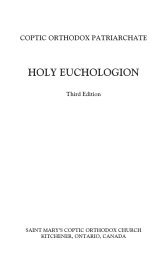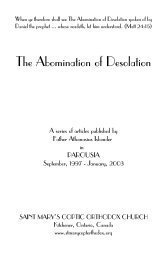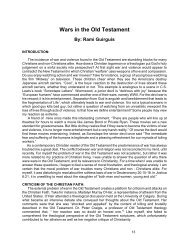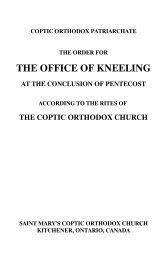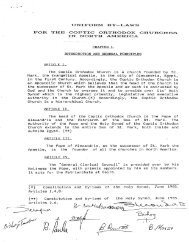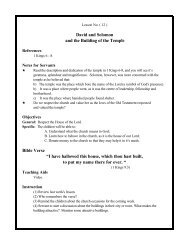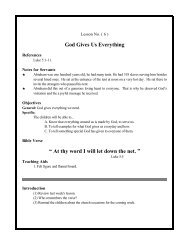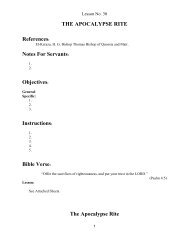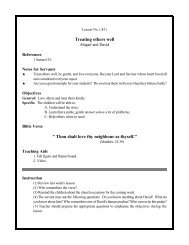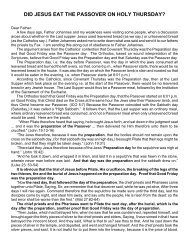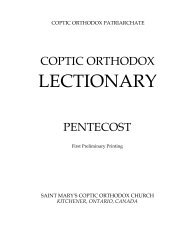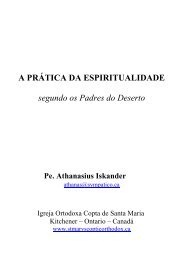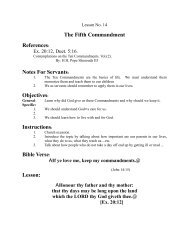Creation - St. Marys Coptic Orthodox Church
Creation - St. Marys Coptic Orthodox Church
Creation - St. Marys Coptic Orthodox Church
Create successful ePaper yourself
Turn your PDF publications into a flip-book with our unique Google optimized e-Paper software.
CHAPTER THREE<br />
AND GOD SAID LET THERE BE LIGHT<br />
And God said, Let there be light: and there was light. And God<br />
saw the light, that it was good: and God divided the light from the<br />
darkness. And God called the light Day, and the darkness he<br />
called Night. And the evening and the morning were the first day.<br />
(Ge 1:3-5)<br />
I am sure that you are all familiar with “magic” shows, where the<br />
magician says abracadabra, and then you see a rabbit! I hope that you<br />
are sane enough to know that the so called magician did not create the<br />
rabbit. It is all illusion, entertaining but not true.<br />
Some people in their simplicity think that the word of God, “Let<br />
there be light” is like a magical word that caused light to be created.<br />
But this is not what the Bible tells us. There are many other verses in<br />
the Bible that speak to us about the creation, for example: “ By the<br />
word of the LORD were the heavens made; and all the host of them by<br />
the breath of his mouth.” (Ps 33:6)<br />
The Psalm here agrees with Genesis 1:3 about the “word” of the<br />
Lord being the cause of the creation of the heavens (the universe).<br />
But if we go to Jeremiah 10: 12, we are told: “He hath made the<br />
earth by his power, he hath established the world by his wisdom.”<br />
How can we reconcile these verses? Was the universe created by<br />
God’s “word” or by His “power” and His “wisdom”? The answer is this:<br />
“word”, “power” and “wisdom” are the same! For it is not the spoken<br />
word that the Psalmist refers to but the eternal Word, the Logos, the<br />
second person of the Holy Trinity. The Fathers are very clear about<br />
this:<br />
When it is said that God rested on the seventh day from all His<br />
works, and hallowed it, we are not to conceive of this in a childish<br />
fashion, as if work were a toil to God, who “spake and it was<br />
done,”--spake by the spiritual and eternal, not audible and<br />
transitory word. 1<br />
1<br />
Augustine of Hippo: City of God, Book XI. Chapter 8 Nicene/Post<br />
Nicene Fathers Series I Vol II



